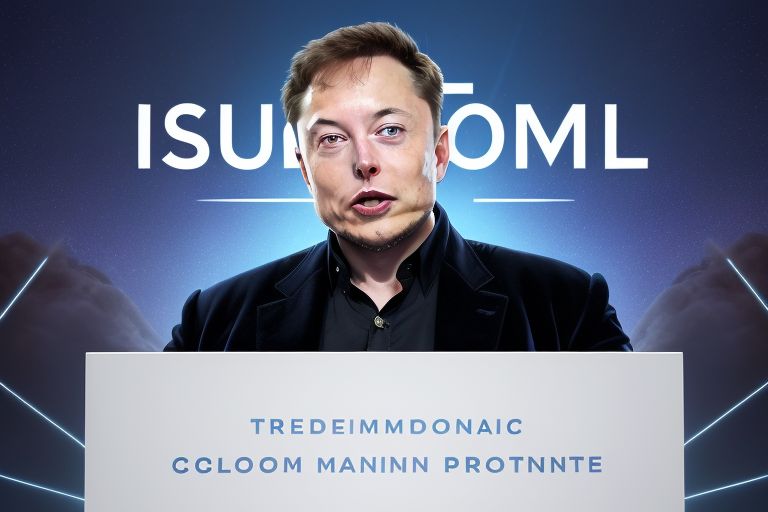
Introduction
The question “Can Elon Musk run for president?” sparks curiosity across the globe, especially among students and fans of the tech billionaire. Elon Musk, the mastermind behind Tesla, SpaceX, and X, is a larger-than-life figure whose influence stretches from electric cars to space exploration. His bold ideas and outspoken nature make many wonder if he could lead the United States as president. However, the U.S. Constitution sets clear rules for who can hold this office, and Musk’s background raises a critical barrier. This article dives deep into the legal, historical, and political aspects of whether Musk can run for president, exploring his citizenship, public statements, and the broader implications of his potential candidacy. Let’s unravel this topic with clarity and excitement for school students and beyond!
Constitutional Requirements for Presidency
To answer “Can Elon Musk run for president?”, we must first look at the U.S. Constitution. Article II, Section 1, states that only a “natural-born citizen” of the United States, at least 35 years old, and a resident for at least 14 years, can become president. The term “natural-born citizen” is key here. It refers to someone born on U.S. soil or to U.S. citizen parents abroad. Elon Musk was born in Pretoria, South Africa, in 1971, which immediately raises questions about his eligibility. While Musk became a U.S. citizen in 2002, naturalization does not meet the “natural-born” requirement. This constitutional rule is non-negotiable, meaning the question “Can Elon Musk run for president?” has a clear legal answer: no, he cannot, due to his foreign birth.
Elon Musk’s Citizenship Journey
Understanding Musk’s citizenship helps clarify why “Can Elon Musk run for president?” is a complex issue. Born in South Africa, Musk grew up in a wealthy family and moved to Canada in 1989 at age 17, leveraging his mother’s Canadian citizenship. He later transferred to the University of Pennsylvania, earning degrees in physics and economics. In 2002, Musk became a U.S. citizen through naturalization, a process for immigrants who meet specific residency and legal criteria. While this grants him full rights as a U.S. citizen, including voting and holding most public offices, it does not make him a “natural-born citizen.” The question “Can Elon Musk run for president?” hinges on this distinction, as the Constitution excludes naturalized citizens from the presidency, no matter their achievements or influence.
Historical Context of the Natural-Born Clause
The “natural-born citizen” rule dates back to the founding of the United States. When the Constitution was written in 1787, the framers wanted to ensure loyalty to the new nation. They feared foreign influence, especially from European powers, and included the clause to prevent someone with strong ties to another country from becoming president. This historical context sheds light on why “Can Elon Musk run for president?” is answered with a firm no. Over the years, this rule has been debated, with critics arguing it’s outdated in a globalized world. However, the clause remains unchanged, and no foreign-born citizen, including Musk, has ever been allowed to run for president. This historical barrier is a cornerstone of the eligibility debate.
Could the Constitution Be Changed?
One way to make “Can Elon Musk run for president?” a yes would be to amend the Constitution. Amending the Constitution requires a two-thirds vote in both the House and Senate, followed by ratification by three-fourths of the states. This is a challenging process, as only 27 amendments have been passed in U.S. history. Proposals to remove the natural-born citizen requirement, like the one suggested for Arnold Schwarzenegger in 2003, have never gained enough support. For Musk, who is 53, such a change would need to happen soon to be relevant. The question “Can Elon Musk run for president?” would only shift if this unlikely amendment occurred, but political and cultural resistance makes it a long shot.
Musk’s Political Influence Without Running
Even if “Can Elon Musk run for president?” is answered with a no, Musk wields immense political influence. As the world’s richest person, with a net worth of over $345 billion as of March 2025, Musk shapes public opinion through his ownership of X and his massive following of over 200 million. His support for Donald Trump in the 2024 election, including over $118 million in donations, shows his power as a political player. Musk’s role as a senior advisor to Trump and head of the Department of Government Efficiency (DOGE) further amplifies his impact. While he can’t run for president, Musk’s ability to influence policy and elections makes the question “Can Elon Musk run for president?” less critical than his current role in shaping America’s future.
Public Perception and Musk’s Statements
The question “Can Elon Musk run for president?” often arises because of his public persona. Musk has never expressed serious interest in running for president, focusing instead on his businesses and technological innovation. In 2025, he responded to a query on X, stating he’s not interested in the presidency due to his South African birth and preference for tech ventures. However, his vocal political opinions, from endorsing Trump to criticizing government policies, fuel speculation. Students and fans admire Musk’s bold ideas, but his controversial statements, like spreading election misinformation, have drawn criticism. The question “Can Elon Musk run for president?” may excite his supporters, but Musk seems content influencing politics from outside the Oval Office.
Comparisons with Other Foreign-Born Figures
To better understand “Can Elon Musk run for president?”, let’s compare him to other prominent foreign-born Americans. Arnold Schwarzenegger, born in Austria, faced the same constitutional barrier when he was California’s governor. Despite his popularity, no amendment was passed to allow him to run. Similarly, Madeleine Albright, born in Czechoslovakia, served as Secretary of State but was ineligible for the presidency. These examples reinforce that “Can Elon Musk run for president?” is not a unique case. The natural-born citizen rule applies equally to all, regardless of fame or contributions. Musk’s South African origin places him in the same category, highlighting the consistency of this constitutional restriction across history.
Legal Challenges and Loopholes
Could there be a loophole to the question “Can Elon Musk run for president?”? Some have speculated about legal challenges to the natural-born citizen clause, arguing it discriminates against naturalized citizens. However, the Supreme Court has never ruled on this issue directly, and constitutional scholars agree the clause is clear. Musk could theoretically challenge the rule in court, but success is unlikely given the Constitution’s explicit language. Another idea is Musk running as a vice-presidential candidate, but the 12th Amendment applies the same eligibility rules to the vice president. The question “Can Elon Musk run for president?” remains firmly answered by the lack of viable legal workarounds, making his candidacy impossible under current law.
Why the Question Persists
Why does “Can Elon Musk run for president?” keep coming up? Musk’s larger-than-life image as a visionary fuels this curiosity. School students, inspired by his Mars colonization dreams or Tesla innovations, see him as a leader who could transform the presidency. His wealth, media presence, and political involvement make him seem like a natural candidate. Additionally, posts on X, like one from @imamsdiary in May 2025, highlight Musk’s influence, calling him the “second most powerful person in the U.S.” This perception drives the question “Can Elon Musk run for president?” despite the constitutional roadblock. The fascination reflects Musk’s unique ability to capture the public’s imagination, even if the presidency is out of reach.
Implications for Future Generations
The question “Can Elon Musk run for president?” also raises broader issues about who can lead America. As the U.S. becomes more diverse, some argue the natural-born citizen rule excludes talented immigrants who contribute to the nation. Students today, many from immigrant families, might wonder if this rule limits their own opportunities. While Musk can’t run, his children, born in the U.S., are eligible, showing how the rule affects generations differently. Debating “Can Elon Musk run for president?” encourages young people to think about citizenship, leadership, and whether the Constitution should evolve. For now, the rule stands, but future generations may push for change in a more globalized world.
FAQs
1. Why can’t Elon Musk run for president?
Elon Musk cannot run for president because he was born in South Africa, and the U.S. Constitution requires presidents to be natural-born citizens. Musk is a naturalized U.S. citizen, but this does not meet the constitutional requirement.
2. Could the Constitution be changed to allow Musk to run?
Yes, the Constitution could be amended to remove the natural-born citizen requirement, but it’s a difficult process requiring two-thirds approval in Congress and ratification by three-fourths of states. Such a change is unlikely in the near future.
3. Has Musk ever said he wants to run for president?
No, Elon Musk has not expressed serious interest in running for president. He has stated he’s focused on his tech ventures and is ineligible due to his South African birth.
4. Can Musk hold other political offices?
Yes, Musk can run for most other offices, like governor or senator, as they don’t require natural-born citizenship. However, he has shown little interest in pursuing such roles.
5. Are Musk’s children eligible to run for president?
Yes, Musk’s children born in the U.S. are natural-born citizens and would be eligible to run for president if they meet the age and residency requirements.
Conclusion
The question “Can Elon Musk run for president?” captures the imagination of students and fans, but the answer is a clear no due to the U.S. Constitution’s natural-born citizen requirement. Born in South Africa, Musk cannot overcome this legal barrier, even with his wealth, influence, or U.S. citizenship. While he can’t run for president, Musk’s role in shaping politics through X, donations, and advisory positions shows he doesn’t need the Oval Office to make an impact.
The debate over “Can Elon Musk run for president?” highlights deeper questions about citizenship and leadership in a global world. For young readers, this topic is a chance to explore the Constitution, dream big, and consider how rules shape who can lead.


